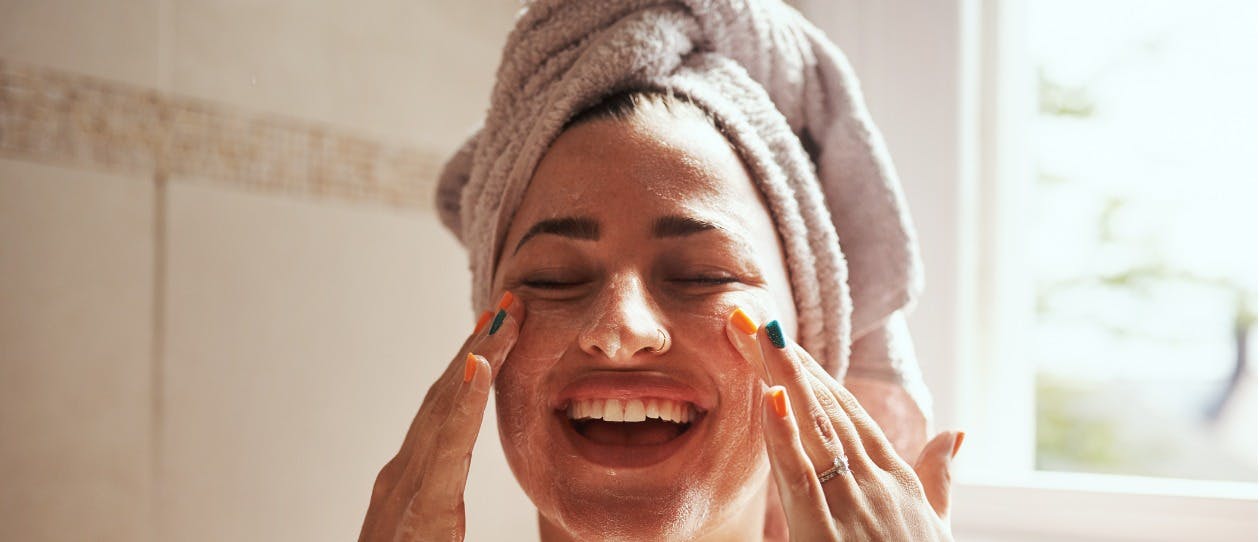
- Health hub/
- Stress relief & sleep support/
- 5 Natural Ways to Reduce Stress


As a way of developing a healthier response to stress, the relaxation response was a technique first developed in the 1970s at Harvard Medical School by cardiologist Dr. Herbert Benson. The relaxation response is a state of profound rest that can be elicited in many ways, including meditation, yoga, and progressive muscle relaxation.
These days, there are many apps and online videos that provide guidance on these techniques, making them more accessible than ever.
Yoga
There is science to support that yoga is excellent at reducing stress. A 2021 study concluded there is evidence that yoga was found as an effective self-management strategy to cope with stress and maintain wellbeing during COVID19 lockdown.
In addition, the World Economic Forum reports that studies show yoga can lower symptoms of stress and support better sleep quality.Yoga is the physical practice of “asanas” or postures that prepare the body for meditation. For example, there are two poses well known for their calming properties.
One is savasana or “dead corpse” where you lay in stillness, while taking notice of and releasing any tension from each body part, from head to toe. Another pose known for its ability to calm, is “child pose” or balasana, where you kneel, bring your arms forward to lay face down. You can leave your arms stretched out in front of you or by your side, and just let your head rest on the floor, turned to one side.
Specific types of music such as sound baths can enhance the relaxing experience.
Mindfulness Meditation
The power of taking pause in your day can be underestimated but can make a big difference to help you reset your energy and decrease your stress levels. Headspace explains that meditation is a tool that can enable you to do this. It employs mindfulness, the ability to be fully present and engaged in the moment. Mindfulness lets us step back from the stress and lets us calm the mind, get in touch with our body, and gain perspective of the world around us. For example, put any distractions, like your phone away, and if possible, in a quiet spot, take some time to stop and take notice of any tension in your face, such as your eyebrows, and soften them. Then, you could start taking some deep breaths to just let go of some of the stress you may be feeling.
According to Headspace, meditation has been scientifically proven to help alleviate stress after just eight weeks of regular practice. In another 2018 study that relied on the Headspace app, meditation was shown to reduce stress by 14% over just a 10-day period.
Meditation does this by training the brain to be more open and respond rather than react to stressful situations. Rather than being caught up in our stress, meditation teaches us to observe our thoughts and so that we become less affected by them and better able to cope with life’s stressors. Meditation helps us to learn to reframe stress, helping us to relate to it in a more accepting way.
Breathing exercises
Breathing exercises help to produce a healthier response to stress. Often when we face stress, our breath becomes shallow. The lowest part of the lungs doesn't get a full share of oxygenated air, which can perpetuate stress. Learning to breathe deeply is the first step to evoke the relaxation response.
According to Harvard University, deep abdominal breathing encourages full oxygen exchange, the beneficial trade of incoming oxygen for outgoing carbon dioxide. Not surprisingly, it can slow the heartbeat and lower or stabilize blood pressure.
A key benefit of breathwork is also that it can help you to disengage from distracting, stressful thoughts.
There are lots of different breathing techniques that you can look into to find which suits you. Ideally you will have 10-20 minutes to practice one of these each day. However, the great thing is that if you can only afford five to 10 minutes a day, it can make a big difference to your stress levels. You should at least feel less stressed than if you hadn’t.
It may help to try to establish a routine, practicing the same time each day.
Getting sleep
Managing stress involves getting adequate sleep. Harvard University reports that poor or inadequate sleep can cause irritability and stress. National Sleep Foundation guidelines advises between seven and nine hours each night.
It can become a vicious cycle however, as it can be difficult to sleep well if you are stressed. So it is important to incorporate one or some of the above relaxation methods to help induce calmness to help you sleep better at night.
Studies have shown that even partial sleep deprivation has a significant effect on mood. A 1997 study by the University of Pennsylvania researchers found that subjects who were limited to only 4.5 hours of sleep a night for one week reported feeling more stressed, angry, sad, and mentally exhausted. When the subjects resumed normal sleep, they reported a dramatic improvement in mood.
If you try adding some more sleep to your schedule, you may be impressed by the results.
Consistent sleep hygiene can facilitate better, deeper sleep. These include going to bed waking up at the same time each day, regardless of how much sleep you've managed to get the night before, working on a calming pre-bedtime routine and ensuring a peaceful sleeping environment.
If you are really struggling and have tried many different things to improve your sleep, it would be ideal to consult a sleep specialist or mental health professional to help address underlying causes. They may recommend behavioural techniques such as cognitive behavioural therapy, an evidence-based therapy designed to strengthen sleep quality.
Walking
According to Cleveland Clinic, exercise has been shown to be a powerful stress reliever. Aerobic exercise has been shown to release endorphins — natural substances that help you feel better and maintain a positive attitude. Headspace reports that exercise also reduces the body’s stress hormones. Walking is a great example of a non competitive aerobic exercise to consider.
Walking and jogging, or any type of exercise where you use large muscle groups in a repetitive fashion, will help you reduce stress. Even a short 10 minute stroll can become a mindful meditation in itself, where you can take a break from a stressful day, get in touch with how you are feeling, take notice of where you might be tense and let it go, relax the mind and clear your head of overwhelming thoughts.





